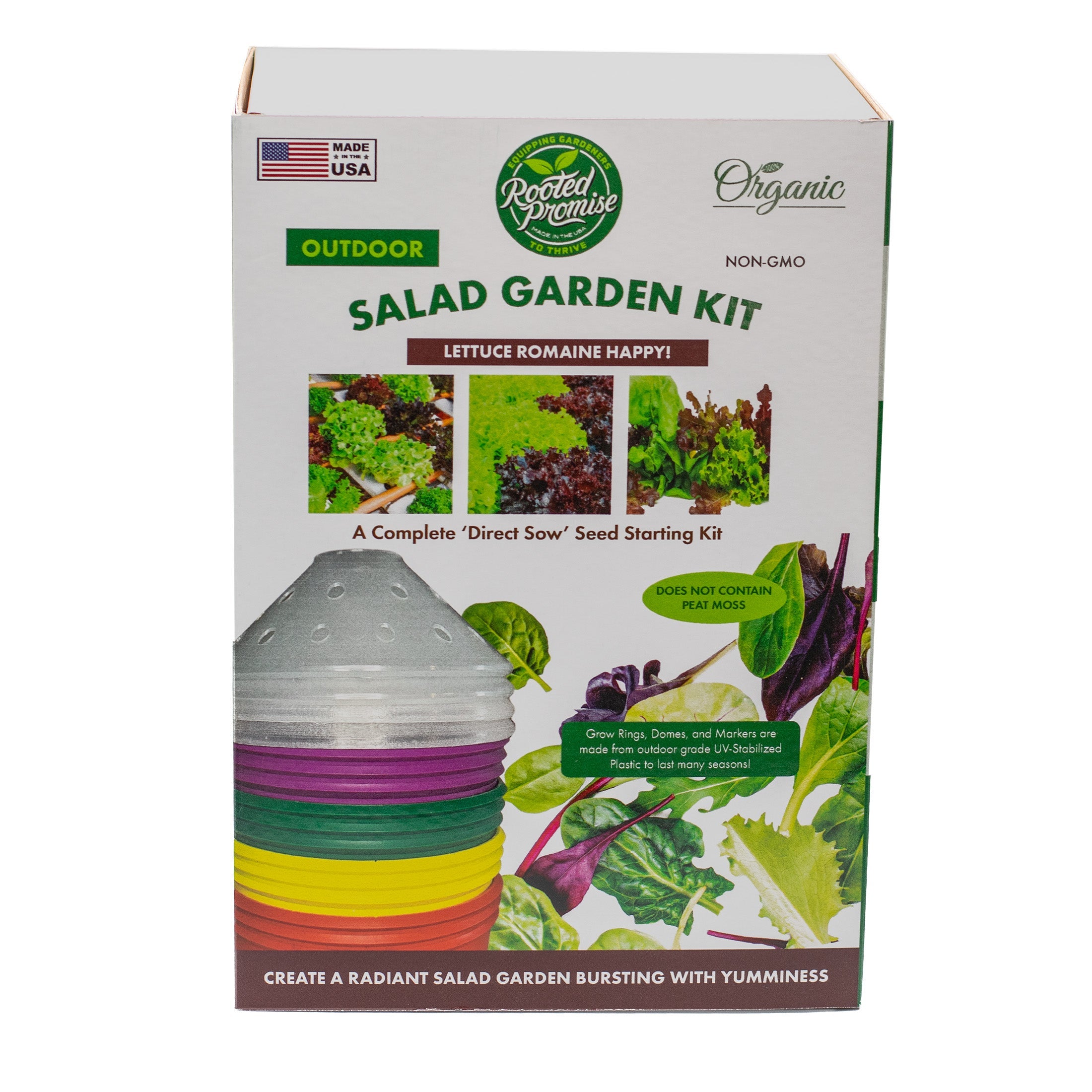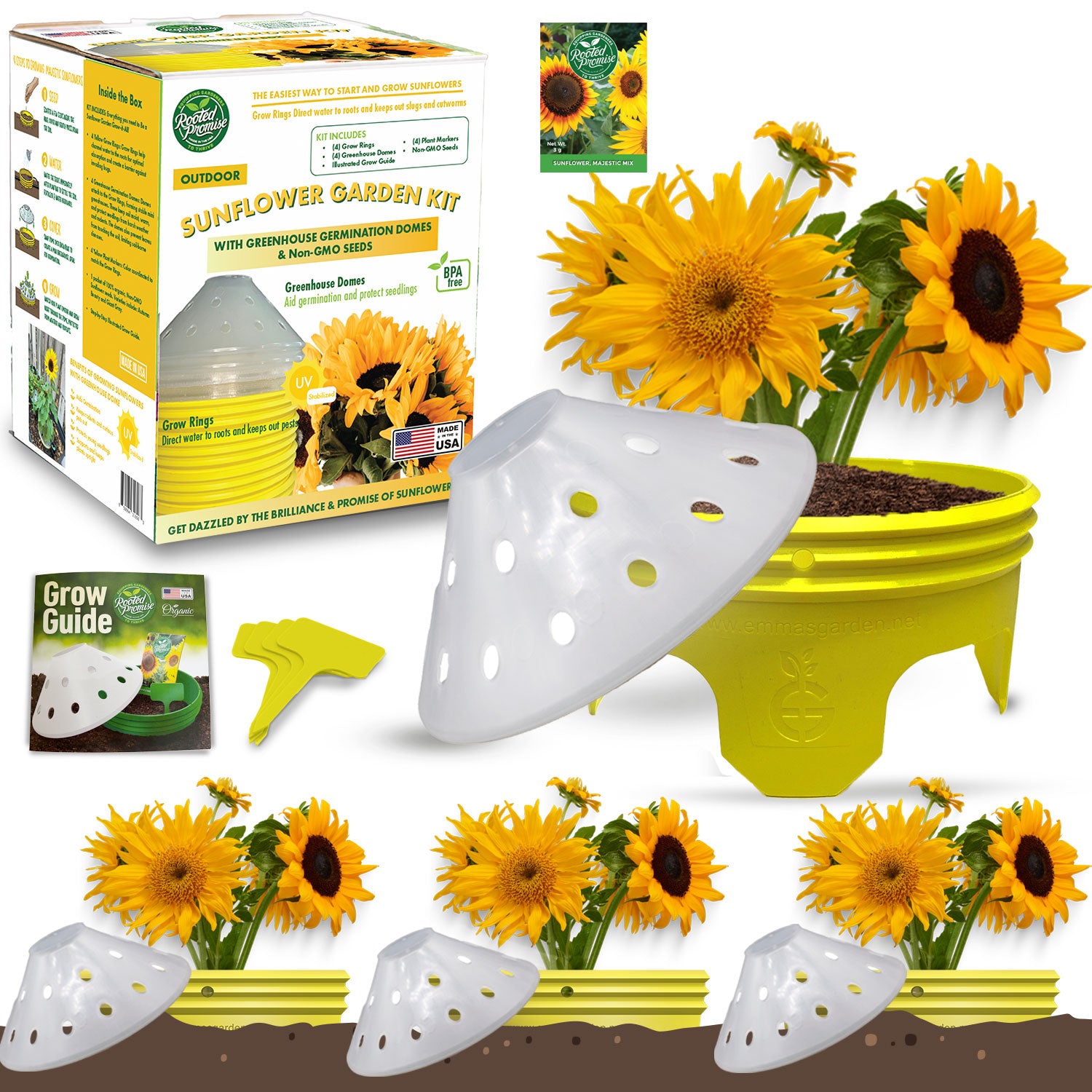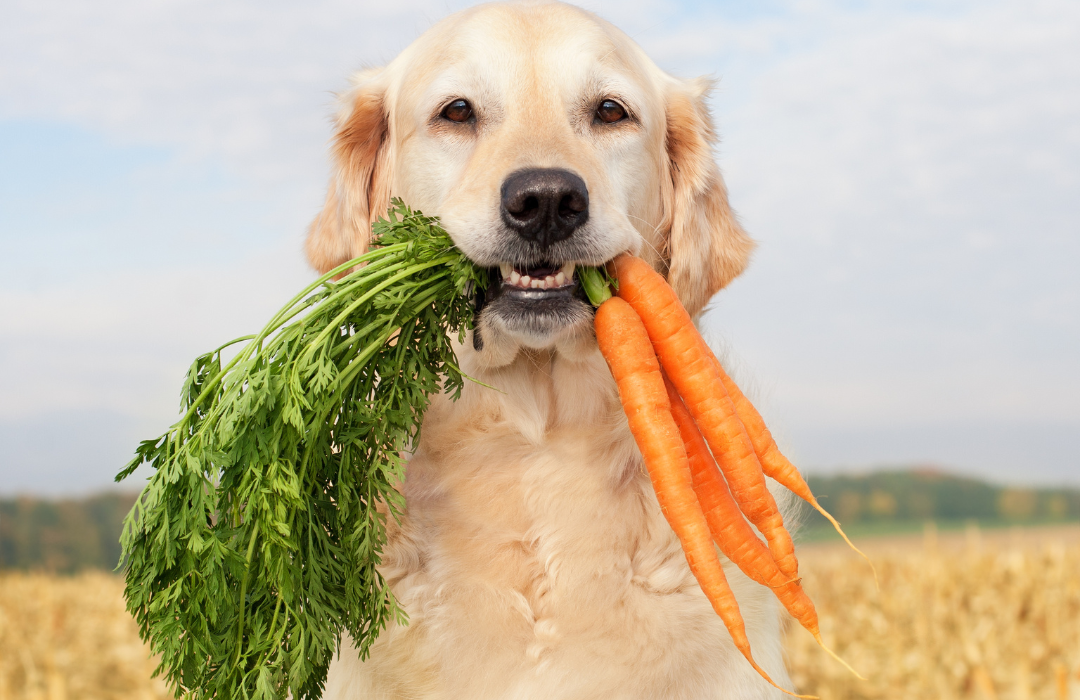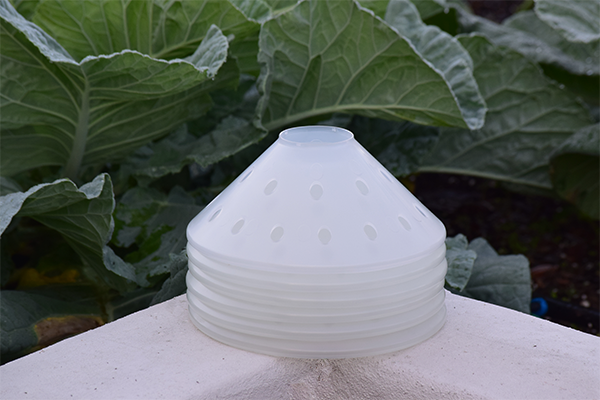Table of Content
-
Introduction
-
The Importance of a Dog’s Diet
-
Herbs Safe for Dogs
-
Basil
-
Parsley
-
Mint
-
Oregano
-
Thyme
-
-
Vegetables Safe for Dogs
-
Carrots
-
Green Beans
-
Pumpkin
-
Sweet Potatoes
-
Spinach
-
-
How to Incorporate Herbs and Vegetables into Your Dog’s Diet
-
Portion Sizes
-
Preparation Methods
-
Frequency of Feeding
-
-
Health Benefits of Herbs and Vegetables for Dogs
-
Improved Digestion
-
Enhanced Immunity
-
Better Weight Management
-
Dental Health
-
-
Herbs and Vegetables to Avoid
-
Onions
-
Garlic
-
Chives
-
Rhubarb
-
Mushrooms
-
-
Tips and Precautions
-
Consulting with a Veterinarian
-
Monitoring for Allergic Reactions
-
Storing Herbs and Vegetables Safely
-
-
Key Takeaways
-
Conclusion
Introduction
Have you ever wondered if the herbs and vegetables you grow can be safely shared with your canine companion? The good news is, many of the greens and herbs we grow and use in our daily cooking can be just as beneficial for dogs. But knowing which ones are safe is crucial to ensuring your pup’s health and happiness.
In this guide, we will explore the herbs and vegetables that are safe for dogs, how to incorporate them into their diet, and the myriad of health benefits they provide. Additionally, we will discuss which ones to avoid, ensuring you have a comprehensive understanding of a balanced and safe diet for your furry friend.
From improving digestion to enhancing immunity, the right homegrown herbs and vegetables can be a game-changer in your dog’s diet. So, let’s embark on this journey to discover how you can make your dog’s meals both delicious and nutritious with herbs and vegetables you grow!
For more detailed guidelines on dog nutrition, you can refer to trusted sources like the American Kennel Club and the American Veterinary Medical Association.
The Importance of a Dog’s Diet
Imagine your dog’s diet as the foundation of a sturdy house. Just as a well-built foundation ensures the stability and longevity of a home, a balanced diet ensures your dog’s overall well-being and vitality. But why is a dog’s diet so crucial?
First and foremost, a nutritious diet provides the essential nutrients needed for growth, energy, and cellular repair. Dogs, much like humans, require a mix of proteins, carbohydrates, fats, vitamins, and minerals to thrive. An imbalance or deficiency in any of these nutrients can lead to health issues ranging from poor coat condition to more severe problems like obesity and diabetes.
Moreover, what your dog eats directly impacts their immune system. A diet rich in antioxidants, vitamins, and minerals can bolster their immunity, helping them fend off illnesses and infections more effectively. Think of it as giving your dog a superhero cape to ward off the villains of the microbial world.
Lastly, a proper diet contributes to weight management. Obesity in dogs can lead to a multitude of issues, including joint problems, heart disease, and a reduced lifespan. Ensuring your dog maintains a healthy weight through a balanced diet can significantly improve their quality of life.
For comprehensive guidelines on dog nutrition, you can refer to resources like the American Kennel Club's Nutrition Guide and the American Veterinary Medical Association.
Herbs Safe for Dogs
Yes, certain herbs can be beneficial and safe for dogs, adding not only taste but also health benefits to their diet. Let's delve into some of these dog-friendly herbs that are easy to grow.
Basil
Basil, with its vibrant flavor and aroma, is more than just a kitchen staple. This herb is known for its anti-inflammatory properties, which can help alleviate arthritis and other inflammatory conditions in dogs. Additionally, basil is rich in antioxidants, which can support your dog's immune system. For more detailed information, refer to the American Kennel Club.
Parsley
Parsley isn't just a garnish; it's a powerhouse of nutrients. This herb is excellent for freshening your dog's breath and supporting their urinary health. Rich in vitamins A, C, and K, parsley can also contribute to your dog's overall well-being. However, avoid using the curly variety, as it can be toxic in large amounts. For more insights, check the ASPCA.
Mint
Mint is another herb that can freshen your dog's breath and aid in digestion. It can help soothe upset stomachs and reduce gas. However, it's important to use it sparingly, as too much mint can cause gastrointestinal issues. Learn more about mint's benefits for dogs at the WebMD Pets.
Oregano
Oregano, often hailed as a super herb, can be a great addition to your dog's diet. Known for its antibacterial and antifungal properties, oregano can help keep your dog healthy. It's also packed with antioxidants, which can support your dog's immune system. For more information, visit the PetMD.
Thyme
Thyme is an herb that offers numerous benefits for dogs. It can support respiratory health, especially in dogs with bronchitis or asthma. Additionally, thyme has antimicrobial properties, which can help fight off harmful bacteria. For a deeper understanding, consult the American Kennel Club.
By incorporating these herbs into your dog's diet, you can enhance their meals with flavors and health benefits. Remember to introduce any new herb gradually and monitor your dog for any adverse reactions.
Vegetables Safe for Dogs
Imagine your vibrant garden, bursting with colorful vegetables that not only nourish you and your family but can also be a treasure trove of nutrients for your dog. Yes, many vegetables are safe and beneficial for your furry friend. Let’s explore some of these canine-friendly veggies.
Carrots
Carrots are a fantastic snack for dogs. They are low in calories and high in fiber, making them excellent for weight management. The crunchy texture also helps in maintaining dental health. Carrots are rich in beta-carotene, which is converted into vitamin A in your dog’s body, supporting eye health. For more details, refer to the American Kennel Club.
Green Beans
Green beans are another excellent addition to your dog’s diet. They are packed with essential vitamins and minerals, such as vitamins A, C, and K, as well as iron and calcium. Green beans are also low in calories, making them an ideal treat for dogs on a diet. Check out more information from the ASPCA.
Pumpkin
Pumpkin is a superfood for dogs, especially when it comes to digestive health. It can help regulate your dog’s digestive system, whether they are dealing with diarrhea or constipation. Pumpkin is also rich in fiber and beta-carotene. For a comprehensive guide, visit the American Kennel Club.
Sweet Potatoes
Sweet potatoes are not only delicious but also packed with essential nutrients. They are rich in dietary fiber, which aids in digestion, and contain vitamins such as B6, C, and A. Sweet potatoes can also help boost your dog’s immune system. For more on the benefits, refer to PetMD.
Spinach
Spinach is a leafy green that offers numerous health benefits for dogs. It is rich in vitamins A, B, C, and K, as well as iron and antioxidants. Spinach can support overall health and vitality, but it should be given in moderation due to its high oxalate content, which can affect calcium absorption. Learn more from the American Kennel Club.
Incorporating these vegetables into your dog’s diet can provide them with essential nutrients and enhance their overall health. Remember to introduce new vegetables gradually and consult your veterinarian to ensure they are appropriate for your dog.
How to Incorporate Herbs and Vegetables into Your Dog’s Diet
Incorporating herbs and vegetables into your dog's diet is akin to adding vibrant colors to a blank canvas. It's an art that can significantly enhance their meals, providing a variety of nutrients and flavors. But how exactly do you go about it? Let’s break it down into simple, effective steps.
Portion Sizes
Just like with any new addition to a diet, moderation is key. Introducing herbs and vegetables in small quantities can help your dog adjust to new flavors and textures without overwhelming their system. For precise guidelines on portion sizes, consult the FDA's recommendations on maintaining a healthy weight for pets.
Preparation Methods
Preparation is crucial when it comes to feeding your dog herbs and vegetables. Raw vegetables can be hard for dogs to digest, so lightly steaming or boiling them can make them easier on their digestive systems. Herbs can be chopped finely and sprinkled over their regular food. Avoid adding any seasonings or oils that could be harmful to your dog. For more information on safe preparation methods, visit the ASPCA.
Frequency of Feeding
While herbs and vegetables can be beneficial, they should not replace your dog’s main diet. Think of them as supplements that add nutritional value. Integrating them into your dog’s meals a few times a week can provide a balanced approach. For detailed feeding schedules, refer to resources provided by the American Kennel Club.
By following these guidelines, you can seamlessly incorporate herbs and vegetables into your dog’s diet, enhancing their overall nutrition.
Health Benefits of Herbs and Vegetables for Dogs
The right herbs and vegetables can your dog thrive. Let’s explore the numerous health benefits these natural additions can bring to your furry friend.
Improved Digestion
Much like a well-oiled machine, your dog’s digestive system can function more efficiently with the right fuel. Herbs like basil and vegetables such as pumpkin are known to aid in digestion. They can help regulate bowel movements and alleviate gastrointestinal issues, ensuring your dog’s digestive tract runs smoothly.
Enhanced Immunity
Think of herbs and vegetables as tiny warriors, each armed with antioxidants, vitamins, and minerals that bolster your dog’s immune system. Ingredients like sweet potatoes and thyme are packed with antioxidants that can help fend off illnesses and infections, giving your dog a robust defense against diseases.
Better Weight Management
Incorporating low-calorie, nutrient-dense vegetables like carrots and green beans can help manage your dog’s weight. These foods are high in fiber, which can make your dog feel full without adding extra calories, aiding in weight control and preventing obesity-related issues.
Dental Health
Just as crunchy vegetables like carrots can help clean your teeth, they can do wonders for your dog’s dental health too. The act of chewing on these vegetables can help reduce plaque buildup and keep your dog’s teeth clean and gums healthy. For more tips on maintaining your dog’s dental health, you can refer to the American Veterinary Medical Association.
By integrating these herbs and vegetables into your dog’s diet, you can provide them with a natural boost to their health. However, always remember that any dietary changes should be made gradually and under the guidance of a veterinarian.
Herbs and Vegetables to Avoid
While many herbs and vegetables can be beneficial for your dog, some can be harmful or even toxic. Imagine navigating a garden filled with both nourishing plants and hidden dangers. Knowing which herbs and vegetables to avoid is crucial to keeping your furry friend safe and healthy. Let’s delve into some of these potentially harmful foods.
Onions
Onions, whether raw, cooked, or powdered, are a definite no-go for dogs. They contain compounds that can damage a dog’s red blood cells, leading to a condition called hemolytic anemia. Symptoms can include weakness, vomiting, and breathlessness. For more detailed information, consult the ASPCA.
Garlic
Garlic, much like onions, belongs to the allium family and poses similar risks to dogs. Even small amounts can cause serious health problems, such as gastrointestinal upset and damage to red blood cells. For a deeper understanding, refer to the American Kennel Club.
Chives
Chives are another member of the allium family and should be avoided. They can cause gastrointestinal irritation and, in severe cases, lead to red blood cell damage. For more insights, check the Pet Poison Helpline.
Rhubarb
Rhubarb leaves contain oxalates, which can cause kidney failure in dogs. The stems are less toxic but still not recommended. Symptoms of rhubarb poisoning include drooling, lethargy, and tremors. For more information, visit the ASPCA.
Mushrooms
While not all mushrooms are toxic, it’s best to err on the side of caution and avoid feeding any mushrooms to your dog. Toxic mushrooms can cause severe symptoms, including vomiting, diarrhea, and even organ failure. For more details, consult the PetMD.
By steering clear of these herbs and vegetables, you can help ensure your dog’s safety and well-being. Always consult your veterinarian before introducing any new food into your dog’s diet.
Tips and Precautions
Embarking on the journey to incorporate herbs and vegetables into your dog’s diet is like navigating a culinary adventure. However, just as any adventure requires careful preparation and safety measures, so does this one. Here are some essential tips and precautions to ensure a smooth and safe transition for your furry friend.
Consulting with a Veterinarian
First and foremost, always consult with your veterinarian before introducing any new herbs or vegetables into your dog’s diet. Veterinarians can provide personalized advice based on your dog's specific health needs and dietary requirements. For more guidance, visit the American Veterinary Medical Association.
Monitoring for Allergic Reactions
Just like humans, dogs can have allergic reactions to certain foods. When introducing a new herb or vegetable, start with a small amount and monitor your dog for any signs of adverse reactions, such as itching, swelling, or gastrointestinal upset. For detailed information on common food allergies in dogs, check the American Kennel Club.
Storing Herbs and Vegetables Safely
Proper storage of herbs and vegetables is crucial to maintaining their freshness and nutritional value. Store herbs in a cool, dry place or in the refrigerator, and keep vegetables in a cool, dark place or in the vegetable drawer of your refrigerator. Always wash them thoroughly before serving to remove any pesticides or contaminants. For more tips on safe food handling, visit the FDA.
By following these tips and precautions, you can ensure that your dog safely enjoys the benefits of herbs and vegetables.
Key Takeaways
As we wrap up this comprehensive guide on safe herbs and vegetables for dogs, let's distill the essential points to ensure you have a clear roadmap for enhancing your dog's diet.
-
Balanced Diet is Crucial: Just like a well-built foundation ensures the stability of a house, a balanced diet is vital for your dog's overall health and well-being. Ensure their diet includes a mix of proteins, carbohydrates, fats, vitamins, and minerals.
-
Incorporate Safe Herbs: Herbs like basil, parsley, mint, oregano, and thyme are not only safe but beneficial for dogs, offering health benefits such as improved digestion, enhanced immunity, and better dental health.
-
Add Nutrient-Rich Vegetables: Vegetables like carrots, green beans, pumpkin, sweet potatoes, and spinach can provide essential vitamins, minerals, and fibers, contributing to your dog's overall health.
-
Avoid Harmful Foods: Steer clear of potentially toxic herbs and vegetables like onions, garlic, chives, rhubarb, and mushrooms, which can cause serious health issues in dogs.
-
Consult Your Veterinarian: Before making any dietary changes, always consult with your veterinarian. They can provide personalized advice based on your dog's specific health needs and dietary requirements.
-
Monitor for Allergic Reactions: Introduce new herbs and vegetables gradually and keep an eye out for any adverse reactions. Refer to resources like the American Kennel Club for more information on common food allergies in dogs.
By following these key takeaways, you can make informed decisions that will enhance your dog's diet and overall well-being. Remember, a happy and healthy dog is a testament to the love and care you provide.
Conclusion
Embarking on the journey of enriching your dog’s diet with safe homegrown herbs and vegetables is much like painting a vibrant masterpiece. Each herb and vegetable adds a brushstroke of flavor, nutrition, and health benefits that can transform your dog’s meals into something truly special. But remember, every masterpiece requires careful planning and thoughtful execution.
By incorporating the right homegrown herbs like basil and oregano, and vegetables such as carrots and pumpkin, you can provide your furry friend with a diet that supports their overall health and well-being. It’s essential to consult your veterinarian before making any dietary changes and to monitor your dog for any adverse reactions.
We've explored the myriad of benefits these natural ingredients can offer, from improved digestion and enhanced immunity to better weight management and dental health. We've also highlighted the importance of avoiding harmful foods like onions and garlic, ensuring you can navigate the garden of your dog's diet safely.
So, are you ready to embark on this culinary adventure with your canine companion? With careful planning and a dash of creativity, you can use your garden's bounty to make your dog’s meals both delicious and nutritious, ensuring they lead a happy and healthy life.
For more comprehensive guidelines and resources on dog nutrition, you can always refer to trusted sources like the American Kennel Club and the American Veterinary Medical Association.












